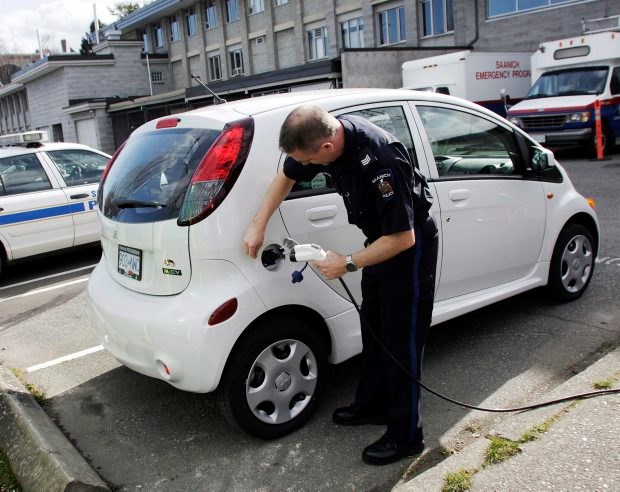How long does it take for the price of an electric vehicle to equal the cost of driving a vehicle with an internal-combustion engine?
We all know that an EV is much more efficient than a comparable gasoline-powered car. But the cost of an EV is much higher than a gas-powered car now. When will the fuel savings equal the cost difference?
That's easy to calculate.
Let's pair a Nissan Versa hatchback with a Nissan Leaf, which is built on the same platform as the Versa.
A Nissan Versa SL with CVT transmission and Navigation package costs $21,675. A Nissan Leaf SL with the Quick Charge package, $42,010. The cost difference is $20,335. With the B.C. government $5,000 incentive applied to the cost of the Leaf, the net difference is $15,335.
Let's suppose an owner drives 20,000 km a year with 45 per cent highway and 55 per cent city driving. At eight cents per kilowatt hour of electricity, the Leaf owner will need to pay $350 to power his vehicle for one year. At $1.25 per litre of unleaded gas, the Versa driver will spend $1,950 driving the same distance. That's $1,600 in fuel costs in a year.
That means it will take the Leaf buyer 9.58 years to recoup the difference between the two vehicles just in gas savings. Of course, that assumes gas prices will stay constant, which is unlikely. But let's keep it at that figure for argument's sake.
Remember that the Leaf won't need any oil changes or tuneups in the same amount of time. Because of regenerative braking, the brakes of an EV will last considerably longer than a conventional car's brakes. The only maintenance items that would cost the same would be the windshield wipers and tires. All those factors means the upkeep is lower for the Leaf.
And then there's the 800-pound gorilla in the room - the environmental cost. The internal combustion engine in the Versa, which is quite efficient, will nevertheless introduce 3.7 tonnes of greenhouse gas to the atmosphere every year. That's 35 tonnes in 9.58 years of ownership.
Needless to say, the Leaf will contribute zero tailpipe emissions - because it doesn't have a tailpipe. Zero emissions means zero guilt while driving. That cost is priceless.
Critics and naysayers will probably find this comparison and calculation simplistic, and it probably is. The numbers look a lot better if the vehicle you replace to buy an EV is a gas hog, and less so if compared to a modern hybrid, for example. The payback is faster if you drive more in the city than the highway, too.
But it all comes down to this: It is possible to justify spending extra for an electric vehicle. Not only does it make financial sense, it makes moral sense.
Contact me: [email protected]
Follow me on Twitter: @pedrothecarguy EV Microsite: timescolonist.com/pluggedin



